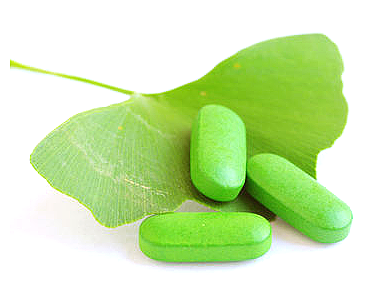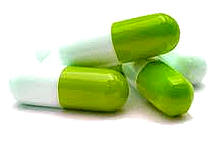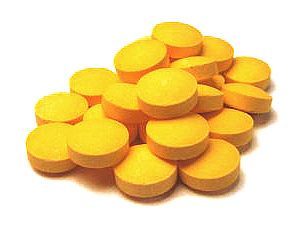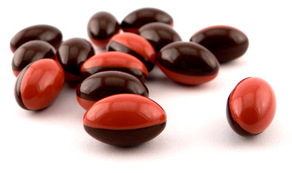Popular Articles
- Listol Supplement Facts
- 9 ADHD Products
- Adderall Alternatives
- Interactions with the ADHD Supplement Listol
- The Most Important Vitamins for ADHD
- Cyntol Supplement Facts
- Memory Enhancement Supplements - Natural and Herbal Enhancers Reviewed
- Herbs for Attention Deficit Hyperactivity Disorder
- Synaptol Review - Any Side Effects?
- Short-Term Memory | Supplements for Improvement
- More Articles ...
 Brain Booster PillsIn This Article
Which memory pills can actually enhance memory and improve cognition? Various clinical studies have set out to answer that question. This article provides a quick summary of the most effective natural remedies commonly included in memory pills.
The magic memory pill may still be some way off but even right now there are pills to take to improve memory and prevent cognitive decline. However, given the sheer number of over-the-counter memory supplements sold, knowing which ingredients to look out for makes it easier to find the most effective pill to help enhance memory and learning. Although memory enhancers are commonly taken by students as they prepare for their exams, memory pills are not mere “brain boosters." They can slow cognitive decline and delay age-related memory loss. The benefits of these pills to people living with neurodegenerative diseases such as Alzheimer’s can be immense especially when taken early on and as part of long-term therapy. This article discusses the most common active ingredients of memory pills that are already proven to provide some benefits in multiple clinical trials. Unlike conventional medicines, these natural remedies are safer and better tolerated. However, they could still cause some mild side effects if taken in large doses. Memory pills should be supplemented with the right diet and adequate sleep and exercise. Generally, the active ingredients in memory pills produce the following effects:
Herbs
There are several effective herbs used in homeopathy and Chinese and Ayurveda traditional medicines. Even as modern medicine became more popular, these herbs are still in use as memory enhancers. Recently, researchers are turning to these traditional remedies in search of drug candidates to treat dementia and neurodegenerative diseases. Therefore, there are now many studies investigating the efficacy and safety of herbs. Quite a number of them are already proven to improve cognitive function, and sometimes even better than conventional drugs. The most common herbs included in memory pills are discussed below. GinsengThe ginsengs to be found in memory pills include Asian ginseng (Panax ginseng) and American ginseng (Panax quinquefolius). Sometimes Siberian ginseng is also used but unlike the other two, it is not a true ginseng. True ginsengs contain a class of phytochemicals known as ginsenosides or panaxosides. These are saponins that are further divided into 2 classes: Rg1 and Rb1 ginsenosides. Both groups of ginsenosides have been shown in different studies to improve cognitive functions including memory. Both classes of ginsenosides act on the hippocampus and the cortex, the two most important seats of memory in the brain. Ginsenosides increase acetylcholine levels in the brain by blocking the inhibition of the cholinergic pathway. They are also known to improve neuronal activities. By these means, the active ingredients of ginseng enhance spatial memory. GinkgoGinkgo refers to the leaf extract of Ginkgo biloba, the oldest tree species known to man. Ginkgo extract contains phytochemicals such as ginkgolides and bilobalides. These are antioxidants and anti-inflammatory agents, and they are responsible for all the medicinal benefits of ginkgo. By increasing blood flow to the brain, ginkgo can promote healthy brain functioning. It is also known to prevent the accumulation of beta-amyloid plaques on brain cells. Therefore, ginkgo can be beneficial for an age-related cognitive decline. However, the results of clinical studies investigating the memory enhancement benefits of ginkgo are mixed. A thorough analysis of these studies indicates that ginkgo provides little to no benefits in the short term. However, when taken as a long-term supplement, ginkgo can improve memory and slow down the cognitive decline experienced by the elderly. Green Tea
Green tea is prepared from the leaves of Camellia sinensis. The leaves are allowed to undergo only a little oxidation in the process of preparation. Therefore, green tea is richer in polyphenol antioxidants than other teas and other drinks. The primary antioxidant in green tea is epigallocatechin gallate or EGCG. EGCG can protect brain cells from oxidative damage caused by harmful free radicals and reactive oxygen species. However, more importantly, EGCG can prompt neurogenesis. Therefore, green tea protects brain cells as well as promote the growth of new ones. Some of the other phytochemicals in green tea have also been shown to block the actions of acetylcholinesterase. This enzyme is responsible for breaking down acetylcholine in the brain. Therefore, green tea also increases the activity of acetylcholine. The net result of these 3 effects is the enhancement of memory as the brain gains more capacity to encode, store, consolidate, and recall memories. Gotu KolaGotu kola or Centella Asiatica is an adaptogen. This means it helps the body respond to stress and reduce the wear down caused by stress hormones and harmful free radicals. Of particular interest are the nootropic effects of Gotu Kola. It improves blood circulation and is traditionally regarded as a brain tonic. Gotu kola is especially suited for enhancing memory and improving cognition in the elderly. Studies show that gotu kola has clear benefits in the management of neurodegenerative diseases. BacopaBacopa monnieri is also commonly known as Brahmi. It is a beloved herb in Ayurveda traditional medicine. The antioxidant effect of bacopa is the most important medicinal property of the herb as a memory enhancer. This antioxidant property is well studied and it was found comparable to synthetic and some other natural antioxidants. The antioxidant property of bacopa is seen in the hippocampus where it helps prevent oxidative damage to neurons as well as break down beta-amyloid proteins before they form plaques in the brain. Bacopa enhances memory only in people with neurodegenerative diseases such as Alzheimer’s disease. AshwagandhaAshwagandha or Withania somnifera is also known as Indian ginseng although it does not belong in the ginseng family. Its uses in Ayurveda medicine include the improvement of cognition. The root extract of this herb was demonstrated to be of benefit to Alzheimer patients because it prevents the accumulation of beta-amyloid proteins. Besides protecting the brain from neurodegeneration, Ashwagandha also promotes neurogenesis. HuperziaThe active ingredient of Huperzia Serrata is huperzine A, a drug candidate for Alzheimer’s disease that is currently undergoing clinical trials. The healthful benefits of Huperzia on the brain are three-fold. First, huperzine A protects brain cells from beta-amyloid accumulation. Also, it also protects nerve cells from glutamate-induced damage while increasing the production of nerve growth factor. Lastly, huperzine A is an acetylcholinesterase inhibitor that increases cholinergic activity, especially in the hippocampus. With all these benefits, huperzine A is a potent memory enhancer and it is believed superior to several conventional medicines used in the treatment of neurodegenerative disorders. Vitamins, Minerals, and OilVitamins A (beta-carotene), C and E
Different studies have demonstrated that these antioxidant vitamins can reduce the risk of Alzheimer’s disease and reverse memory loss by reducing oxidative stress in the brain. Vitamin DThe role of vitamin D in cognitive functioning is one of the new areas of memory research. The distribution of vitamin D receptors in the brain is also concentrated in the parts of the brain responsible for memory. In one study, elderly patients with vitamin D deficiency scored lower on cognitive tests than those with adequate levels of the vitamin. Vitamin D deficiency is especially linked with short-term memory loss. In another study, vitamin D supplementation improved working memory, the speed of information processing, and mental focus. B VitaminsFolate and vitamin B12 are the two most important B vitamins for improving cognitive functions. Deficiencies of both vitamins have been linked to nerve damage and memory loss. Therefore, supplementation of both vitamins can help restore memory capacity and protect the brain against neurodegeneration. Folate and vitamin B12 help prevent the accumulation of homocysteine, a neurotoxin, and cardiotoxic metabolite. These vitamins convert homocysteine to methionine, a useful amino acid needed for many bodily functions. In one study published in the American Journal of Clinical Nutrition, a group of 700 volunteers between the ages of 60 and 74 was given a placebo or a daily combination of 400 micrograms of folic acid and 100 micrograms of vitamin B12. After 12 months, there was no difference between the vitamin group and the placebo group. However, after 24 months of continuous supplementation, the vitamin group scored higher on short-term memory tests. Carnitine and ALCARL-Carnitine is synthesized from two amino acids, lysine and methionine. It was once called vitamin Bt and required for lipid metabolism. Carnitine is also an antioxidant that may help protect brain cells. It is known to reduce mental fatigue and improve cognitive function in the elderly. ALCAR or acetylcarnitine is a derivative of L-carnitine. It is better absorbed than L-carnitine. ALCAR can easily cross the blood-brain barrier. It is a powerful antioxidant in the brain and proven to be a neuroprotective agent. ALCAR is effective for treating nerve damage and it can improve memory function in patients suffering from neurodegenerative disorders. MineralsCalciumCalcium is required for the formation of several enzymes. Calcium deficiency is also related to memory loss. Therefore, calcium supplementation can help reverse memory loss caused by hypocalcemia. MagnesiumResearchers from the Massachusetts Institute of Technology and Tsinghua University in Beijing showed that magnesium promotes neurogenesis in children and also improves cognitive function in adults. SeleniumAlthough selenium is a trace element, it is a potent antioxidant and it improves the antioxidant actions of vitamin E too. Therefore, it can significantly mop up harmful free radicals and prevent brain damage.
|
| Next Article: ADHD & GABA - Will it Help? |





 For centuries,
For centuries, 
 These are the antioxidant vitamins. They protect brain tissue and neurons from the harmful effects of free radicals and reactive oxygen species. These vitamins also have secondary effects that can also contribute to memory enhancement. For example, vitamin E can also improve blood flow in the brain.
These are the antioxidant vitamins. They protect brain tissue and neurons from the harmful effects of free radicals and reactive oxygen species. These vitamins also have secondary effects that can also contribute to memory enhancement. For example, vitamin E can also improve blood flow in the brain. Iron
Iron